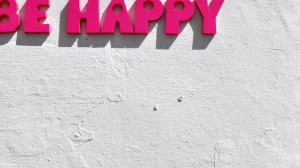Charlotte Frey from climb shares her key learnings when it comes to building a workplace culture to be proud of.
The greatest thing about being an entrepreneur, to me, is building culture from the ground up and being intentional about the kind of place to work you want to be. From decisions about what your office looks like and how it's furnished, how knowledge and information is stored and shared, how and when people work - it all comes back to culture. The culture we’ve built at climb in the last 5 years is the thing I’m proudest of, so I want to share some learnings about the culture we’ve built.
Our mission is to build a bolder, better world by empowering kids and millenials to recognize what makes them powerful. We fiercely believe in the power of people to make a difference - in each other's lives, and towards a brighter future. And so we create spaces where that happens, where people have a chance to make a difference for each other. We call them "Lernferien" - summerschool-style programmes where aspiring teachers work with kids from low-income families to unlock the potential they've been carrying inside them all along. Too many of the kids we work with don't know they're valuable, don't know they're special. And they live in a world that's not really ready to see value in these kids, because of how they look, where their parents were born or what neighborhood they live in.
During our programmes, we don't change people. We help them locate what makes them powerful and unique. And then we show them how to use that power to create the change that they want to create. We give them the tools they need to start showing up for themselves and for others, tools like grit, the ability to make a plan or to work with others.
And that vision of what learning and school should feel like translate pretty directly into our working culture, because it has to. If I fiercely believe in the power of an eight year old to write his own story, and I do, then I have to trust in my teams ability to do so as well. If my life's work is to show kids and millennials that they are more powerful than they know, that means the office also needs to be a place where people are challenged, are celebrated, where people feel safe and feel like they're growing every day.
So here are some of the tools that have helped us build our workplace to be that kind of space:
Joy
We work really hard, but we also have fun. We share funny youtube videos and have dance parties, but it's deeper than that: we take joy in what other people do well. We celebrate successes, and we try to assign projects at least partly based on who is going to bring joy from doing them. We are an envy-free, competition-free workplace because we are entirely working towards the same goal, because we love the kids we serve and everybody who works for us has bought into our vision, which at its core, is about joy, too.
Getting shit done
As far as I'm concerned, if you work at a non-proft, getting shit done in the most time and cost-effective way possible is a moral imperative. Every Euro that we spend on our team is money that doesn't directly go into the hands of the kids and families we serve - and I take that seriously, because there's a growing body of research that shows that handing out cash to families that need it might be way more effective than in-kind donations or interventions. It matters to me that we have what I call a "culture of achievement”, where my team is set up to get to work: meetings are short, well-structured and people show up prepared; knowledge and best-practices stored accessibly; using technology in an intentional way. I’ve also learned along the way that being effective does not mean working more. Nobody works efficiently when they’re tired, overwhelmed, getting over a cold or not spending enough time with their loved ones. Part of my responsibility is to make sure everyone’s recharging their batteries and balancing work and everything else in a way that sets them up for long-term success.
High and clear expectations
I ask a lot from people. They only way they know what I want them to do, is if I tell them. That sounds basic, but it's actually profound: we spend a lot of time communicating expectations as clearly as possible. Every project we do gets a small kick-off where we talk about goals, resources and responsibilites. This clarity takes a lot of work from me as a leader, because I have to figure out what it is, specifically, I am asking people to do and plan purposefully and realistically. My goal is for everyone who comes to work for me to know what they're doing, why they're doing it, what success is going to look like and how that's going to contribute to our mission as a company. And my team appreciates that clarity and rises to the occasion every day, and usually, they blow even my highest expectations out of the water.
Continuous Diagnostics
Having high expectations mean that I, as a leader, have a responsibility to encourage, empower, support and sometimes cajole my team into meeting those expectations. Part of that is knowing where everyone is, what they're great but also what they're still struggling with. People who work for us are fully realized humans, with strengths and vulnerabilities and I encourage them to bring their whole selves to work. I understand that "fair" isn't when everyone's treated equally, it's when everyone gets what they need to be successful, and part of my job is seeing what it is people are working on, what they're struggling with, figuring out what it is they need to move to the next level.
Leading like this is invisible work
It often feels like you're not actually doing anything, just holding space for people to grow. Sometimes, it even feels a little thankless, because when you're doing your job well, people don't actually need you very much, and then you need to have the grace and humility to get out of their way as quickly as possible.
But I was a teacher for a while, and I think that as much as we should think about teaching as leadership, we should also think about leadership as teaching. I know that there is no better feeling than watching a kid master a concept he's struggled with all week. Nothing feels better - except the feeling that I have now when I watch my team walk out and do their world-beating thing every day, do the things that are hard, walk into the arena ready for a fight every single day.
Especially if you work with a team of young people - I think of part of my work as preparing them for a lifetime of getting shit done in other jobs, in other arenas. So when I think about the work we’ve been doing for the past seven years, and what’s still to come, when I think about legacy, I don’t just think about the kids whose lives we’ve touched, or the young teachers bringing joy and resilience into their classrooms. I think about the amazing team of world-beaters I get to walk into the arena with every day, and all the amazing things they’ll do in whatever their next chapter will be, whenever that will start. And that makes me pretty excited about the future.
Updated on 20.10.2022










